| |
| |
|
Msiri
(c. 1830 - December 20, 1891) founded and ruled the Yeke Kingdom
(also called the Garanganze or Garenganze kingdom) in south-east
Katanga, DR Congo from about 1856 to 1891. His name is sometimes
spelled 'M'Siri' in articles in French. Other variants are
'Mziri', 'Msidi', and 'Mushidi'; and his full name was Mwenda
Msiri Ngelengwa Shitambi....[more]
The colonisation of Africa
has a long history, the most famous phase being the European
Scramble for Africa of the nineteenth century... [more]
The Scramble for Africa,
also known as the Race for Africa, was the proliferation of
conflicting European claims to African territory during the
New Imperialism period, between the 1880s and the First World
War in 1914. The last 20 years of
the nineteenth century saw the transition from ‘informal
imperialism’ of control through military influence and
economic dominance to that of direct rule.[1] Attempts to
mediate imperial competition, such as the Berlin Conference
(1884 - 1885) between Britain, France and Germany, failed
to establish definitively the competing powers' claims...[more] |
| |
South-central Africa
in 1880 showing the central position of Msiri’s Kingdom
and the principal trade routes, with the approximate territories
of Msiri’s main allies (names in yellow) and the European
powers (names in orange) before borders were settled by the
Berlin Conference. The east coast trade was controlled by
the Sultan of Zanzibar. Areas of influence of other tribes
and of France, Germany, not shown. |
William Grant Stairs (July 1, 1863 –
June 9, 1892) was a Canadian-British explorer, soldier, and
adventurer who had a leading role in two of the most controversial
expeditions in the history of the colonisation of Africa...
[more].
Captain Stairs was appointed to the privately-funded Emin
Pasha Relief Expedition led by Henry Morton Stanley, at the
time the most celebrated living explorer of Africa. The Stairs Expedition to Katanga of 1891-1892
led by Captain William Stairs was the winner in a race between
two imperial powers to seize Katanga, a vast mineral-rich
territory in Central Africa, which it achieved through the
killing of an African king, Mwenda Msiri. This 'scramble for
Katanga' was a prime example of the colonial Scramble for
Africa, and one of the most dramatic incidents of that period.
On one side of the race was the Congo Free State (CFS), Belgian
King Leopold II's instrument for private colonisation in Central
Africa. On the other was the company chartered by the British
Government to make treaties with African chiefs, the British
South Africa Company (BSAC) of Cecil Rhodes, who mixed a ruthless
approach to gaining mineral concessions[1] with a vision for
British imperialism spanning the continent. Caught between
them, and attempting to play one off against the other, was
Msiri, warrior-king of Garanganze or Katanga, a country not
yet signed up to colonisation by a European power, and larger
than California. [more] |
|
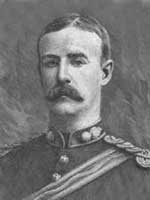
|
| |
|
Maria de
Fonseca was the favourite wife of Msiri, the powerful warrior-king
of Katanga, at the time when the Stairs Expedition arrived
in 1891 to take possession of the territory for the Belgian
King Leopold II, with or without Msiri's consent. Msiri typically
cemented alliances with trading partners by marriage. Maria
was the daughter of mixed Portuguese-African parents from
Angola, and brother of Coimbra, the first trader to supply
him with gunpowder from the west coast, the key to Msiri's
power.
In 1891, Maria was about forty-five years
old and Msiri, about sixty, and had been ruler of Katanga
for thirty years. When treaty negotiations with Msiri reached
stalemate, Christian de Bonchamps, third officer of the expedition,
proposed capturing Msiri and holding him hostage. Msiri typically
had 300 armed warriors at his stockade, but de Bonchamps had
discovered that every night, he would leave with just a handful
of guards to visit Maria at her compound nearly a kilometre
away.
Captain Stairs rejected the idea of the
ambush in favour of an ultimatum, and this led to a confrontation
in which Captain Omer Bodson shot Msiri dead, and was himself
fatally shot. Maria and Coimbra appear to have come to terms
with this development, and took part in talks with Stairs
on the acceptance by Msiri's successor of Leopold's sovereignty
over Katanga. Coimbra returned to Angola but Maria remained
in Katanga as she enjoyed her position at the king's court...[more] |
The Marquis
Christian de Bonchamps (1860—1919) was a French explorer
in Africa and a colonial officer in the French Empire during
the late 19th- early 20th century epoch known as the "Scramble
for Africa", who played an important role in two of the
more notorious incidents of the period... [ more]
|
|
|
|
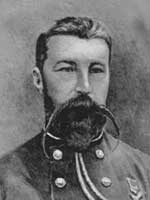 |
|
Omer
Bodson (5 January 1856 — 20 December 1891) was the Belgian
officer who shot and killed Msiri, King of Garanganze (Katanga)
on 20 December 1891 at Bunkeya in what is now DR Congo. Bodson
was then killed by one of Msiri's men... [ more] |
| |
|
Joseph
Moloney (1857-5 October 1896) was the Irish-born British medical
officer on the 1891-92 Stairs Expedition which seized Katanga
in Central Africa for the Belgian King Leopold II, killing
its ruler, Msiri, in the process. Dr Moloney took charge of
the expedition for a few weeks when its military officers
were dead or incapacitated by illness, and wrote a popular
account of it, With Captain Stairs to Katanga: Slavery and
Subjugation in the Congo 1891-92, published in 1893... [ more]
For the current only account of the incident of December
20, 1891, refer to Maloney's written account "With
Captain Stairs to Katanga: Slavery and subjugation in the
Congo 1891-92"
|
|
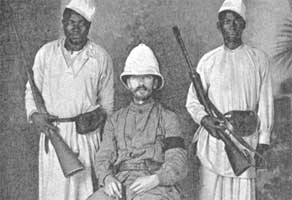 |
| |
|
|
|
|
|
| |
|
|
|
|
|
|
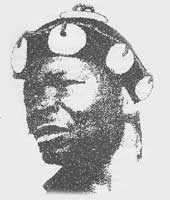 |
|
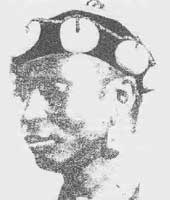
|
|
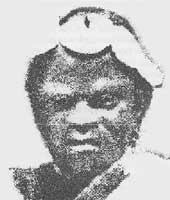 |
|
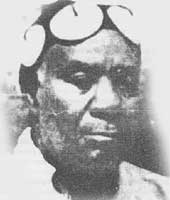 |
| Mwami M'siri Ngelengwa Shitambi
1850 - 1891 |
|
Mwami Kalasa
Mukanda-Bantu
1891 - 1910 |
|
Mwami Kitanika
Mabumba Mushalila
1910 - 1940 |
|
Mwami Munongo
Musamfya Ntanga
1940 - 1956 |
| |
|
|
|
|
|
|
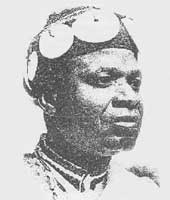 |
|
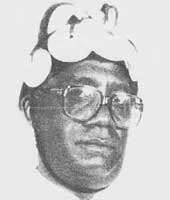 |
|
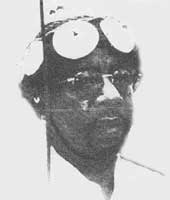 |
|
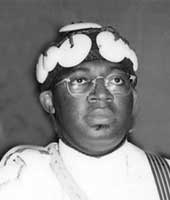 |
| Mwami Antoine Muniongo Luhinda
Shalo
1956 - 1976 |
|
Mwami Godefoid
Munongo Shyombeka We Shalo
1976 - 1992 |
|
Mwami Christian
Munongo M'siri Mwemera
1992 - 1997 |
|
Mwami Mwenda Bantu Godefroid Munongo Jr.
1998 - present
|
|
|
|

